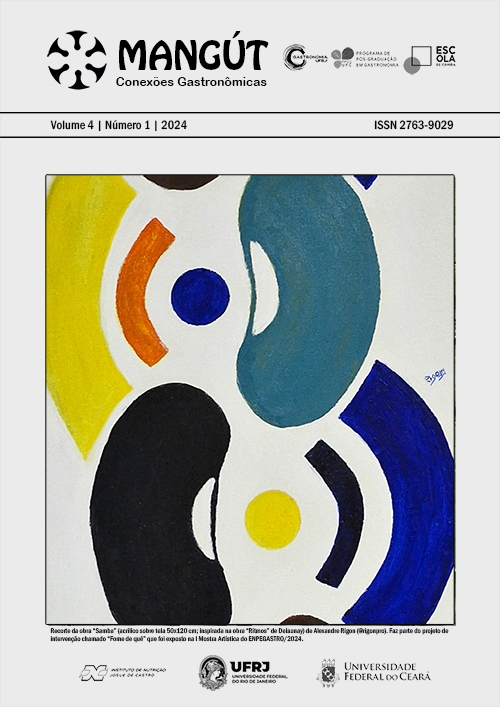Challenges and opportunities for scientific research in Gastronomy in Brazil
DOI:
https://doi.org/10.70051/mangt.v4i1.62739Keywords:
Gastronomy, Tourism and hospitality, Scientific researchAbstract
The aim of this research was to examine the challenges and opportunities for the maturing of the scientific field of Gastronomy based on its interface with the scientific field of Tourism & Hospitality in Brazil. To this end, interviews were conducted with leading researchers from this interface. The main results, analyzed from a Bourdieusian perspective, pointed to the presence of antagonistic pressure forces, called "forces of domination" and "heretical forces", which restrict or stimulate the maturing of Gastronomy as a scientific field of its own and more autonomous in relation to T&H. The main "forces of domination" were the perceived dependence on the epistemological and formal structures offered by the scientific field of T&H and the theoretical-methodological deficiencies and conceptual inconsistencies. Among the main "heretical forces" are the proposal for a master's degree course in Gastronomy, the creation of specialized scientific journals, the growth of the scientific community and the breadth of this field. As its main contributions, this research suggests some proposals aimed at maturing the scientific field of Gastronomy.
Downloads
Published
Issue
Section
License
Copyright (c) 2024 Rafael Cunha Ferro

This work is licensed under a Creative Commons Attribution 4.0 International License.
Autores que publicam nesta revista concordam com os seguintes termos:
- Autores mantém os direitos autorais e concedem à revista o direito de primeira publicação, com o trabalho simultaneamente licenciado sob a Licença Creative Commons Attribution que permite o compartilhamento do trabalho com reconhecimento da autoria e publicação inicial nesta revista.
- Autores têm autorização para assumir contratos adicionais separadamente, para distribuição não-exclusiva da versão do trabalho publicada nesta revista (ex.: publicar em repositório institucional ou como capítulo de livro), com reconhecimento de autoria e publicação inicial nesta revista.
- Autores têm permissão e são estimulados a publicar e distribuir seu trabalho online (ex.: em repositórios institucionais ou na sua página pessoal) a qualquer ponto antes ou durante o processo editorial, já que isso pode gerar alterações produtivas, bem como aumentar o impacto e a citação do trabalho publicado (Veja O Efeito do Acesso Livre).



